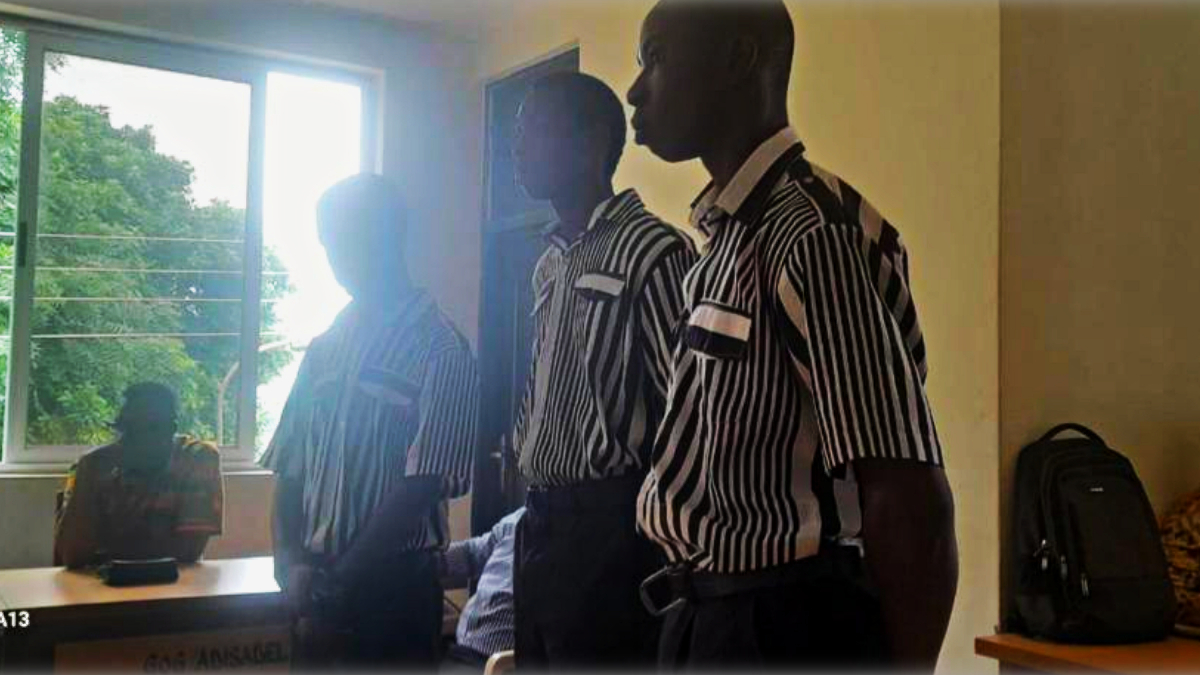Lands Minister warns of crisis in mining sector, calls for urgent reforms

Ghana’s Minister for Lands and Natural Resources, Hon. Emmanuel Armah-Kofi Buah, has issued a stark warning about the declining state of the country’s mining sector, cautioning that without immediate and decisive reforms, the nation risks facing severe environmental and economic consequences.
Addressing a high-level seminar with key industry stakeholders in Accra, the Minister highlighted the alarming degradation of natural resources — including widespread deforestation and heavily polluted water bodies — and outlined a comprehensive reform agenda aimed at overhauling mining governance and restoring sustainability in the sector.
“Our water bodies are reaching dangerous levels of pollution. Ghana Water Company is already shutting down treatment plants because the water can no longer be purified. If we don’t act now, we may not have a country left,” Hon. Buah declared, drawing attention to the loss of 44 forest reserves and more than 5,500 hectares of forest cover due to unregulated mining.
The Minister announced that the Ministry is currently undertaking a comprehensive review of the Minerals and Mining Act (2006) and the Mining Policy (2014) as part of efforts to foster a more inclusive, responsible, and sustainable mining sector.
He outlined several key reform proposals, including:
- Decentralizing the licensing process to actively involve traditional authorities and local communities in decision-making.
- Introducing a new medium-scale mining category to bridge the gap between small-scale and large-scale operations.
- Promoting Ghanaian ownership of mining concessions through a revised investment framework that prioritizes local participation.
- Mandating community engagement and benefit-sharing agreements as prerequisites for the issuance of mining licenses.
- Reclaiming abandoned or underutilized concessions for environmentally responsible, community-led mining initiatives.
These reforms, the Minister emphasized, are aimed at building a mining sector that benefits Ghanaians equitably while protecting the environment for future generations.
Hon. Emmanuel Armah-Kofi Buah also highlighted persistent challenges within the mining sector, notably the hoarding of concessions by large companies and the continued marginalization of local communities. He criticized firms that have held vast tracts of land for years without undertaking meaningful development, leaving surrounding communities in poverty.
The Minister stressed the urgent need to strengthen the capacity of the Ghana Geological Survey Authority, emphasizing its critical role in generating accurate geological data to support responsible mining practices and curb illegal mining activities.
The Minister expressed concern over the unchecked importation and misuse of excavators, revealing that over 1,200 excavators were discovered operating without proper oversight in just three weeks. In response, the ministry is working with the DVLA to launch a tracking system that will monitor all excavators from the ports to their final destinations.
“This system will ensure we know exactly where every excavator is — no more blind spots,” he said.
In a firm and uncompromising statement, Hon. Emmanuel Armah-Kofi Buah condemned the involvement of powerful individuals in illegal mining, emphasizing that the battle against the menace must rise above partisan interests.
“This is not a political fight — it’s a fight for our survival,” he declared. “Illegal mining is a national crisis, and we must confront it with unity and courage to safeguard the future of our country.”
He called on the judiciary, prosecutors, and law enforcement agencies to intensify their efforts, insisting that no one — regardless of their influence or connections — should be above the law.
Certainly! Here’s a refined and impactful version of the paragraph:
The Lands Minister’s address signals a pivotal shift in Ghana’s mining governance, setting the stage for a more inclusive, transparent, and sustainable approach to managing the sector.
With new legislation and policy reforms on the horizon, the government is urging all stakeholders across the mining value chain to rally behind a national reset — one that prioritizes people, protects the environment, and secures long-term prosperity over short-term profit and political interests.





